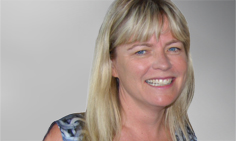“EVERYBODY has a personal story connected to kidney disease — it’s a very prevalent, personal and difficult story for patients and their families and the community.”
So said Darwin-based nephrologist Dr Paul Lawton to MJA InSight this week when commenting for our news story about chronic kidney disease in Indigenous Australians.
My own story doesn’t involve a celebrity or a dramatic clinical encounter, but a family road trip.
Last year we visited some relatives who live in the Anangu Pitjantjatjara Yankunytjatjara (APY) lands of South Australia. On our first day in the lands, the small community where we were staying, including the school, the shop and all the other workplaces, ground to a standstill to focus on a funeral.
It was for a man of my age from the community who had died after a long stint living 400 bumpy, dusty kilometres away in Alice Springs so that he could access haemodialysis for kidney failure.
As we waited for the coffin to arrive by plane I was struck by the wrongness of this homecoming and the fact that, for many remote-living Aboriginal families, kidney disease causes an absence of loved ones long before their deaths.
Later that week we trundled another 1200 km to Adelaide to visit another family member — a young woman who has relocated from the APY lands to look after her aunt, who is also having regular haemodialysis. She misses her home and is not in paid employment but it makes her aunt’s life bearable to have her there.
In these cases the human stories serve to underscore what we know epidemiologically. With World Kidney Day approaching later this week, nobody would argue with the assertion that we need to redouble our efforts to reduce the unacceptably high rates of kidney disease in Indigenous Australians, and to improve the management and the lives of those who already have it.
But syncing lived human experience with medical expertise isn’t always so neat. Your inner epidemiologist might be challenged by the other two news stories in MJA InSight this week.
One story details an MJA study that assessed the sensitivity and specificity of a new rapid test for HIV that is done via an oral swab and is theoretically suitable for home use.
The new test failed to diagnose two of the 13 HIV cases in the high-risk study population. Both were early infections when the virus is at its most contagious. Despite this, HIV medicine experts believe the test should be approved for use in Australia.
The idea of some patients being falsely reassured and others dealing with a devastating diagnosis without professional support is worrying, but the experts say it’s the price we need to pay if we want to increase testing rates.
It is estimated that less than a quarter of high-risk men who have sex with men are testing at the recommended frequency and about 14% have never been tested. Most new infections in Australia are among these men.
Watching the stories of two such men on a video from the HIV Foundation Queensland makes it easier to understand why widespread use of an imperfect test might just be the perfect solution to the problem of unwitting HIV transmission.
Another news story deals with an area that causes controversy even among experts — cancer screening. A study published in The BMJ last week found that consumers vary widely in their willingness to accept the negative consequences of overdetection in order to reduce cancer-specific mortality from real cases.
In response, Australian academics told MJA InSight that consumers need more balanced information about screening, including the harms, even if this results in reduced participation rates.
But Sally Crossing, chair of Cancer Voices NSW and speaking as someone who has survived early breast cancer, was critical of any move that might reduce screening participation, saying the thinking in this area focused too much on epidemiological data and neglected the experiences of individuals.
The way forward would be easier if the experts could agree but, in wishing for this, it is easy to forget that experts are people too.
Everyone has a personal story: it is what drives us forward and holds us back. Like it or loathe it, but factor it in.
Dr Ruth Armstrong is the medical editor of MJA InSight. Find her on Twitter: @DrRuthInSight

 more_vert
more_vert
Thank you for your article. As a mentor keeps reminding me – n=1. The way forward needs to include the subjective experiences of individuals to go beyond the “bland profile” that epidemiological data projects.